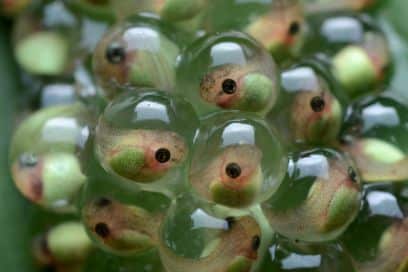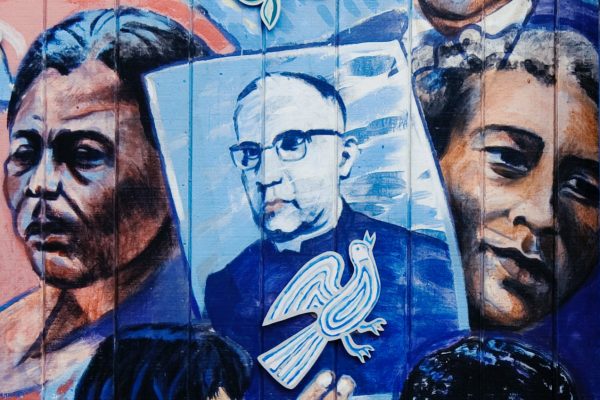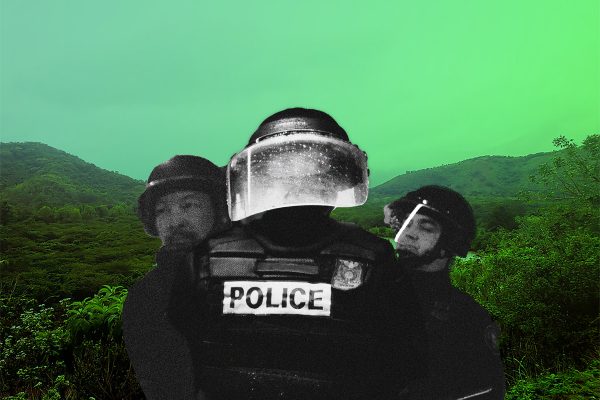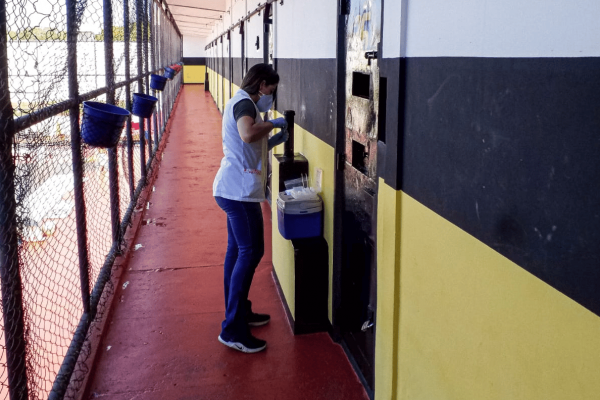Costa Rica has no army. This often surprises people; we have grown used to the outsized militarism of the rest of Latin America.
Depending on how you count armies, between fifteen and twenty-three countries do without standing military forces, and Costa Rica, with 4.8 million inhabitants, is among the most populous. The Central American nation’s pacifism traces to forty-four days in 1948, when a bloody civil conflict over disputed national elections left some 2,000 people dead. The rebels were led by José Figueres Ferrer, who defeated the forces of President Teodoro Picado. Shortly after, Figueres presided over a constitutional assembly, and on December 1, 1948, he abolished the military, taking a hammer to the walls of the Bella Vista barracks in the capital San José. It was Costa Rica’s last significant act of political violence. Considering its neighbors, Panama to the south and Nicaragua to the north, this is no small feat.
Now a quarter of the landmass is given over to national parks. Tourism—beaches, surfing, volcanoes, handicrafts, ziplines, canopy bridges, ATV circuits, nature watching—hasn’t ravaged the country’s soul. Social welfare is by many accounts exemplary for a small country of limited resources. Intel recently set up a microprocessor plant, tapping the well-educated workforce. The local tabloids have nothing to report on but car wrecks and fútbol, at which the country made a strong showing during last summer’s World Cup.
Is such a paradise really possible? I recently spent a week cycling with my girlfriend from the capital to the coast, around a number of the active volcanoes that line the country’s central spine. It was the rainy season, which Costa Rican tourism boosters have cleverly renamed the “green season.” We saw a metallic-blue river made into a prism by a suspension of aluminum silicate: “When God painted the sky,” the guide said, “he rinsed his brushes here.” We visited a rainy “frogarium,” spotting red-eyed tree frogs; hammer frogs singing ping, ping as if shaping steel on an anvil; and tiny bright “blue jeans,” whose indigo legs make their common name, and whose backs secrete a deadly poison. (The glass frog’s organs are visible through its skin, but it was elusive.)
Or better: when, on a remote road, a spoke popped on my back wheel and I pulled over to replace it with a spare, it wasn’t long before a young man with Down syndrome—out on his mountain bike for some afternoon exercise—arrived to lead us to the next town’s ciclo. There, the mechanic’s wife opened the shop, which had been shuttered while the owner was away getting some paperwork done in San José. She set the truing stand on an overturned plastic bucket and told me to sit where he usually does, on the step outside. She’d accept no payment. “You did the work,” she said.
But at the beachside town outside Manuel Antonio National Park, not everything was paradise after all. Roadblocks had been set up at both entrances, and officers of Fuerza Publica, the national police force, were checking identification. Yellow crime-scene tape had been strung from palm to palm, between the Pacific Ocean and the jungle-covered lava slopes behind, and a pair of bulldozers were parked near huts of corrugated zinc roofing and lashed mangrove. Several units of the force, shouldering automatic rifles, stood in the bored pose of an operation’s aftermath. It had the hallmarks of a drug bust. A small coast guard cutter plied the shell-shaped bay. Rain came down. I asked a pair of cops sheltering in a beach restaurant: Panamanian traffickers come north? Nicaraguan smugglers come south? No, desalojo, one said, shrugging—an eviction. Who? Illegal immigrants? A crime ring? He seemed to debate giving the targets that distinction. Trinket sellers, he said—two rows of shacks peddling knick-knacks, artesanías—who were squatting and evading taxes. Within an hour the bulldozers had reduced the shacks to rubble, and order was restored.
After the trip I marveled to the Costa Rican–born Colombian friend I knew from seven years of living in Bogotá: blue rivers! Birds of paradise! Tapirs: mammals with huge penises (a favorite of one of our guides). Monkeys! That genuine friendliness. Sure, there was poverty, some of it severe, but where were the honking cars and noisy radios? The potholes? No memorials to the fallen, no paramilitary cronies and hard-line proto-dictators, no fist-raised statuary to mark the struggle. And then I realized: no well-known poets, no recognizable writers, no fatalism, even, despite the geodynamics. Not the Latin America I knew.
Yes, yes, yes, she said, with a mix of awe and dismay at her countrymen. “And from this”—transparent frogs; the indifferent, ever-looming volcanoes; the utopian experiment in total happiness—“they produced no magical realism?”








